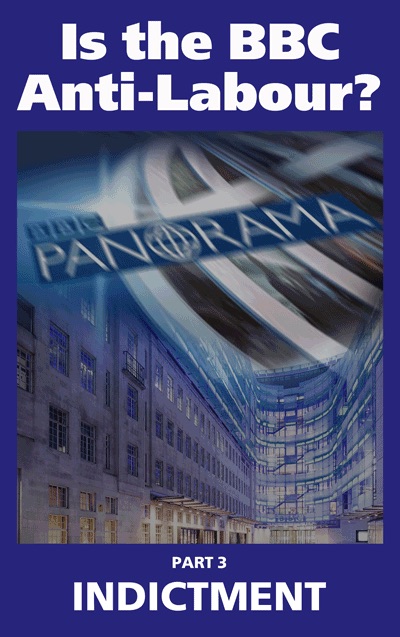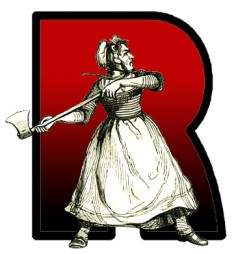A little known case reveals the full depth of Labour’s cynical treatment of Diane Abbott
NOTE
This article was originally published on the Press Gang Substack platform — to read posts as they are published you can obtain a free subscription at https://paddyfrench.substack.com
—————————————————————————————————————————————————————
In a few weeks Diane Abbott will have been suspended by Labour for a year.
Her “crime” was to suggest that white Irish, Jewish and Traveller people “undoubtedly experience prejudice,” which she said is “similar to racism”.
“But they are not all their lives subject to racism.”
Abbott quickly withdrew the remarks and apologised.
The Board of Deputies of British Jews, one of the groups which claims to represent many of Britain’s 300,000 Jews, said her remarks were “disgraceful”:
We have written to Keir Starmer expressing our deep concern and asking for the whip to be removed.
Starmer immediately suspended her from the Parliamentary Labour Party pending an investigation.
Abbott remains a party member but, like Jeremy Corbyn, now sits as an independent MP.

Now compare this draconian treatment with that of a Labour member who said of Abbott in December 2017 that “it’s about time she got put in a box with the lid fastened firmly”.
This story was broken by the Skwawkbox website.
The next day Skwawkbox reported that Andy Bigham, from Dudley in the West Midlands, had been suspended for making the comment .
What happened next, however, has never been reported in the mainstream media.
The story began when a large number of complaints, starting in April 2016, were made about Bigham.
In December 2017, after these had been ignored by the party’s complaints team, there were new complaints about his “coffin” comment about Diane Abbott:
One complainant argued that this “could be construed as a threat or instruction to carry out the threat”.
The previous year, in June 2016, fellow Labour MP Jo Cox had been murdered by a far right fanatic.
Despite the seriousness of Bigham’s comment, one complaints official initially noted:
“I don’t think this would be considered a death threat by the police or would warrant suspension”.
She added that “our advice would be a written warning and a reminder of our social media policy”.
A more senior official then intervened: Bigham’s comment was “disgusting” — “leave it with me”.
Bigham was then suspended.
The suspension lasted just two months. In February 2018, a complaints official lifted the suspension with a written warning.
Over the following three months there were more complaints about Bigham’s apparent support for the Conservative Party. No action was taken.
In June 2018 there was another complaint which again included the Abbott “coffin” comment. An official said that, because this issue had already been investigated, the party would be “unable to look into this matter again”.
He added that the party does not
discourage members from posting their views or entering into healthy debates on social media.
It was not until a complainant went directly to general secretary Jennie Formby that action was taken. She said Bigham’s support for the Tories was grounds enough to withdraw his membership.
He was then auto-excluded.
(This account is based on the internal party report, The work of the Labour Party’s Governance and Legal Unit in relation to antisemitism, 2014–2019, which was leaked in April 2020. Pages 537-543.
Keir Starmer was asked if he accepted this version of events. He did not reply.)
Bigham’s “punishment” for calling for Diane Abbott to be placed in “a box with the lid fastened firmly” was a brief suspension and a written warning.
Fast forward to March this year. When the Guardian revealed that businessman and Tory donor Frank Hester had said Diane Abbott “should be shot,” Starmer was quick to exploit the situation.
The Guardian quoted Hester’s comment in a meeting at the Leeds headquarters of his computer software company in 2019:
It’s like trying not to be racist but you see Diane Abbott on the TV and you’re just like, I hate, you just want to hate all black women because she’s there, and I don’t hate all black women at all, but I think she should be shot.
Hester has given the Tory party £10m, making him the party’s largest ever political donor. The Guardian calculated that government, NHS and local authorities had paid more than £440m to Hester’s companies since 2016. Hester, the sole owner, “collected dividends of £33.5m for the last five years for which accounts … are available.”
Hester told the paper he “accepts that he was rude about Diane Abbott in a private meeting several years ago but his criticism had nothing to do with her gender nor colour of skin”. The statement said Hester abhorred racism, “not least because he experienced it as the child of Irish immigrants in the 1970s”.
Hester’s remark caused a political storm. Prime Minister Rishi Sunak belatedly admitted the remarks were racist but refused to return the £10m Hester had donated.
When the issue was raised at Prime Minister’s Questions on March 13, Keir Starmer asked Sunak if he was:
… proud to be bankrolled by someone using racist and misogynous language when he said that the right hon. Member for Hackney North and Stoke Newington (Ms Abbott) ‘makes you want to hate all black women’?
Sunak replied that the “comments were wrong and they were racist. He has rightly apologised for them and that remorse should be accepted. There is no place for racism in Britain, and the Government that I lead is living proof of that.”
Starmer replied
Mr Speaker, the man bankrolling the Prime Minister also said that the right hon. Member for Hackney North and Stoke Newington should be shot. How low would he have to sink, what racist, woman-hating threat of violence would he have to make, before the Prime Minister plucked up the courage to hand back the £10 million that he has taken from him?
However, despite nearly 50 attempts to catch Speaker Lindsay Hoyle’s eye, Diane Abbott was not allowed to speak.
This afternoon, a spokeswoman for Hoyle denied that his decision not to call Abbott was due to pressure from Starmer:
No this is not true.
During Prime Minister’s Questions, the Speaker must select MPs from either side of the House on an alternating basis for fairness. This takes place within a limited time frame, with the Chair prioritising the 15 Members who are already listed on the Order Paper.
On 13 March 11 Opposition party members were drawn in the ballot, and four Government members. Due to limited time, there was not an opportunity for Members on the Opposition side who were bobbing to put their questions – and not everyone on the Order Paper was called.
Mr Speaker would have been open to a Point of Order being raised on this issue at the end of PMQs, but none was forthcoming.
Hoyle also denied that his actions were prompted by concerns that the Labour leader might deny him the peerage normally given to Speakers on retirement.
This tradition was broken when the previous Speaker, John Bercow, was refused a peerage. He had offended many Tories in the way he had handled Commons business.
Hoyle’s spokeswoman said:
This is untrue.
Starmer’s office did not reply to questions.
The Labour leader has also resisted calls to restore the whip to Abbott in the wake of the Hester affair.
Abbott has criticised Labour for sending out a fundraising email saying it was “fuming” about Hester’s remarks: “Hypocritical barely covers it,” she said.
She did not respond to questions.
Police investigations into Hester’s comments continue.
An Amnesty International study in 2017 found that Abbott, who was sent on average 51 abusive tweets a day, “receives an incredibly disproportionate amount of abuse and was the target of almost a third … of all abusive tweets we analysed”.
Ends
RECOMMENDED
Article
Rivkah Brown, How the Guardian editor in chief caved in to pro-Israel pressure, Novara Media, 12 March 2024
A fascinating account of how Guardian editor Kath Viner shapes the paper’s policy on the Palestine-Israel question and the alleged infuence of its powerful pro-Israel staff members.
Website
Skwawkbox
https://skwawkbox.or
@skwawkbox
It was Skwawkbox, run by Unite member Steve Walker, that first exposed the Andy Bigham case featured in this Press Gang article.
With 72,000 followers on Twitter, it’s an influential — and sometimes controversial — blog from a left wing perspective.
Book
Asa Winstanley, Weaponising Anti-Semitism: How The Israel Lobby Brought Down Jeremy Corbyn, (OR books, 2023)
The definitive account of how pro-Israel groups in the UK combined to play the antisemitism card against the former Labour leader. Even those who disagree with its thesis will find it a carefully researched and useful account of Corbyn’s leadership.
CORRECTIONS Please let us know if there are any mistakes in this article — they’ll be corrected as soon as possible.
RIGHT OF REPLY If you have been mentioned in this article and disagree with it, please let us have your comments. Provided your response is not defamatory we’ll add it to the article




 Posted by Rebecca
Posted by Rebecca 







